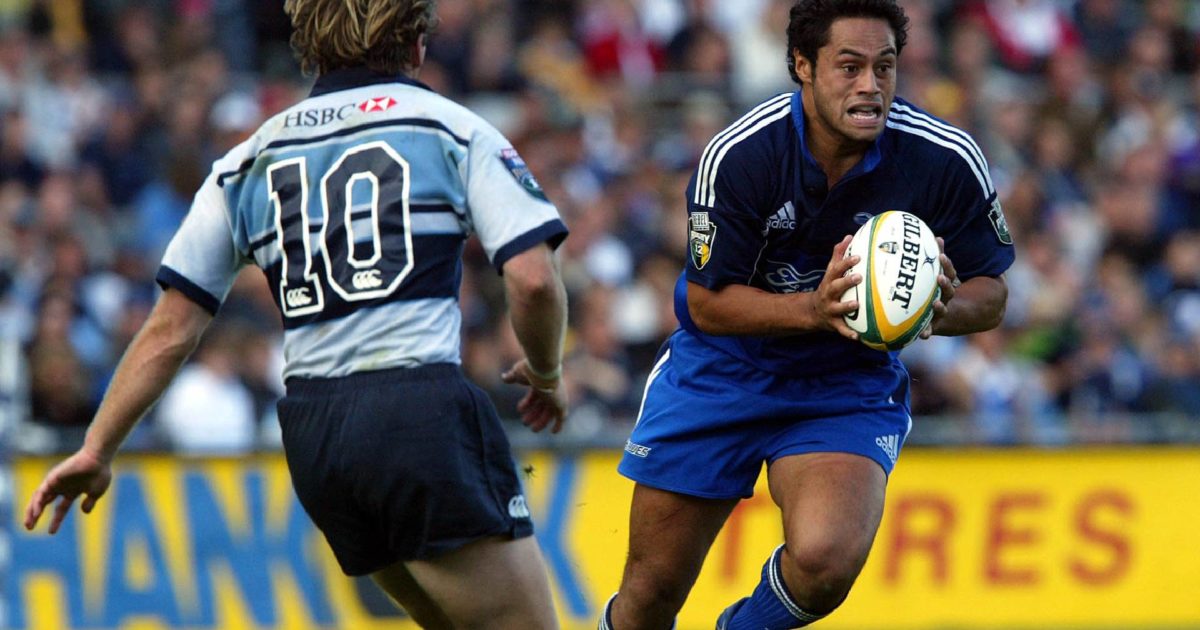'I got to a really dark place that I didn't even know I was in': Ex-All Black Ben Atiga and former Fijian stars open up on mental health struggles

Pacific Rugby Players Welfare boss and former Samoa international Dan Leo has released the next episode in his Oceans Apart series, focusing on the mental health struggles faces by Pacific players worldwide.
After having already released episodes about former Fiji star Rupeni Caucaunibuca and Samoan cult hero Trevor Leota, Leo speaks to a raft of former internationals about their experiences with mental health issues.
The episode comes in the midst of the ongoing COVID-19 pandemic, where mental health concerns have been exacerbated as people around the globe have been forced to isolate from the outside world in a bid to combat the virus.
As highlighted in this episode, these issues are particularly prevalent for Pacific players playing professionally abroad.
Leo, who was capped 42 times by Samoa between 2005 and 2014, uses this episode to explore how mental health has impacted Pacific players from years gone by.
One-cap All Blacks utility back Ben Atiga, former Fiji captain Netani Talei, ex-Fiji hooker Sunia Koto and 2016 Olympic champion Fiji sevens coach Ben Ryan all speak of their experiences with mental health and what can be done to help alleviate the stigma it is often associated with.
Talei explained that the “alpha male” role that Pacific men strive towards and a reluctance to be a burden on others often restricts their ability to ask for help when it’s needed.
Koto suggested that becomes even more difficult for Pacific players when they are thrust into a professional rugby environment overseas.
“In the Islands, we are a community-based people, and you are being thrown into an ‘every man for himself’ environment,” the former 59-test front rower told Leo.
“We get a shock. We’re not going to the neighbours house and say ‘Can you help me?'”
Atiga, who made his international debut at the 2003 World Cup, revealed he retired from the game at the age of 25 after struggling to cope with the pressures associated with being an All Black.
“I got to a really dark place that I didn’t even know I was in,” the 36-year-old recalled.
“I went to a place where I was doing some really bad things. I was way overweight, about 120kg from paying at 98kg the season before.
“But I woke up and didn’t think anything was wrong. I didn’t even think to go back and play for a long time.
“I had this thought in my head that I’ll go back eventually, I will go back, and when I look back on it now, I didn’t even notice but I was only 25.”
Pacific Rugby Players Welfare is a not-for-profit organisation that works with over 400 Pacific Island rugby players worldwide, providing them the support, advice & skills they need to thrive, both during and after their rugby careers.
Players, clubs and agents are encouraged to get in contact with the organisation if anyone is in need of support during this challenging time by visiting www.pacificrugbywelfare.com.
Furthermore, if anyone is able to contribute financially to PRPW’s support network, they can do so by clicking the link here.



















































